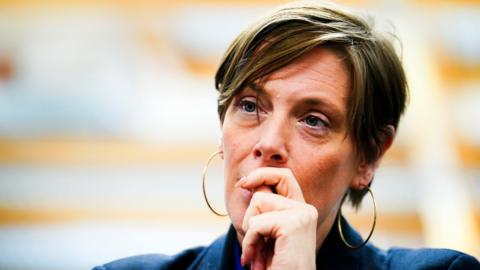Phillips, who has been a victim of stalking, added the proposals aims to help people "feel safe in their environment".
She said that she was stalked by someone who had made death threats against her and other women, and was still able to contact her while in prison.
"I had somebody who was in prison for harming - well, seeking to harm me - and then was able to write letters to me, contact me from prison," she said.
She said she received a "crestfallen" phone call from the justice secretary at the time apologising to her that this had been allowed to happen.
Under the new reforms, judges will be able to impose Stalking Protection Orders when offenders are convicted to stop this happening.
The independent victims' commissioner for London, Claire Waxman, welcomed the changes - saying the criminal justice system had "struggled to deal robustly with stalking, leaving "offenders undeterred and victims at risk" for too long.
A spokesperson for charity Action Against Stalking said removing anonymity from stalkers means individuals will be held accountable for their "harmful behaviour".
"Victims often feel powerless when their abuser remains anonymous, which can exacerbate feelings of fear and vulnerability," said the charity, which is based in Scotland but works across the whole of the UK.
But they said while the proposed measures represent a step in the right direction, their effectiveness will depend on implementation.
"Adequate resources must be allocated to law enforcement, the criminal justice system, and victim support services. Equally important is public education to reduce stigma and ensure victims feel safe coming forward," they added.
Emma Lingley-Clark, interim CEO at personal safety charity the Suzy Lamplugh Trust said the new protections were "urgently needed".
"We hope these changes will begin a transformation of the way all agencies work together to improve the recognition and management of stalking and better support those affected by this devastating crime," she added.

